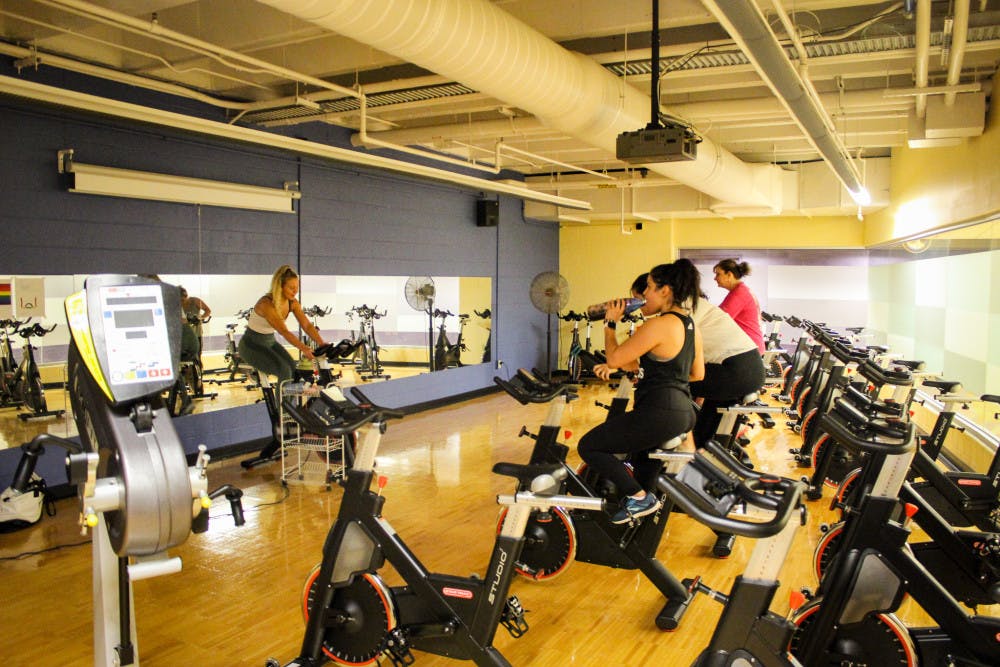WSU Bicycling Class | Photo by Daniel Delgado | Edited by Jessica Fugett | The Wright State Guardian
As the third week of the semester sets in, students are starting to get settled in their classes; one of the ways students can de-stress is through exercise. Campus Recreation offers a number of fitness classes, including yoga, cylcing, zumba and circuits, to name a few.
“I’ve seen first-hand the effects that working out has on my mental clarity and my overall happiness and well-being in life. I’ve seen it affect other people in that way too,” said Kara Donbrock, program manager of fitness and wellness for Campus Recreation.
The classes are open to students, staff and faculty alike for any reason; whether it be a form of stress relief or a fun hobby to do with friends, these classes are a great option.
“I am making decisions all day at work. When I walk in the fitness class, I stop making decisions and shut my mind down,” said Sue Polanka, a staff librarian and student of cycle sculpt, circuit training, water aerobics, barre blend and yoga. “All I have to do is listen and follow the lead of the instructor. I spend much of my time in class with my eyes closed, especially in yoga where I focus on breathing, and in spinning, where I cycle to the beat of [the teacher’s] music and block out the rest of the world.”
As a teacher of cycling, yoga, TRX, circuit and more, Donbrock loves doing what she does and the impact these classes have on students.
“I have so much gratitude when I teach and watch other people grow in their fitness and make goals for themselves. [When] I'm not teaching, every time I walk by the studio, I see people laughing and having fun; it’s such a good stress reliever. We’re all so stressed out in life and this is such a healthy way to release it,” said Donbrock.
Mindfulness goes beyond yoga classes and/or meditation. Taking care of yourself helps you be a better student.
“Engaging in exercise, meditation or any kind of relaxing activity has the ability to reduce measures of anxiety. Anxiety is linked with depression. If you can engage in behaviors that make [you] feel less anxious, that can contribute to an overall mental well-being,” said Dr. Patricia Schiml, research professor and senior lecturer in the Department of Psychology.
Depending on your comfort level, Dr. Schiml stresses the positive impact of social support.
“If you experience stress with people around you that you can fall back on for support, the physiological impact of that stress is going to be reduced. If you’re able to build on and strengthen your social relationships, that can provide benefits in of itself,” said Schiml.
Schiml advises awareness toward the balance between lowering your stress and procrastinating. Using effective coping strategies means studying for half an hour, rewarding yourself by taking a break, then going back to studying and so on.
Along with the mental health benefits of these classes, Campus Recreation works to make this available to anyone interested. Instructors are willing to help and can accommodate to students with special needs. Through Adapted Recreation, students get matched with a workout buddy that can focus on them and their needs.
“[We make sure] we are welcoming to people; we’re there to support each other,” said Donbrock.










